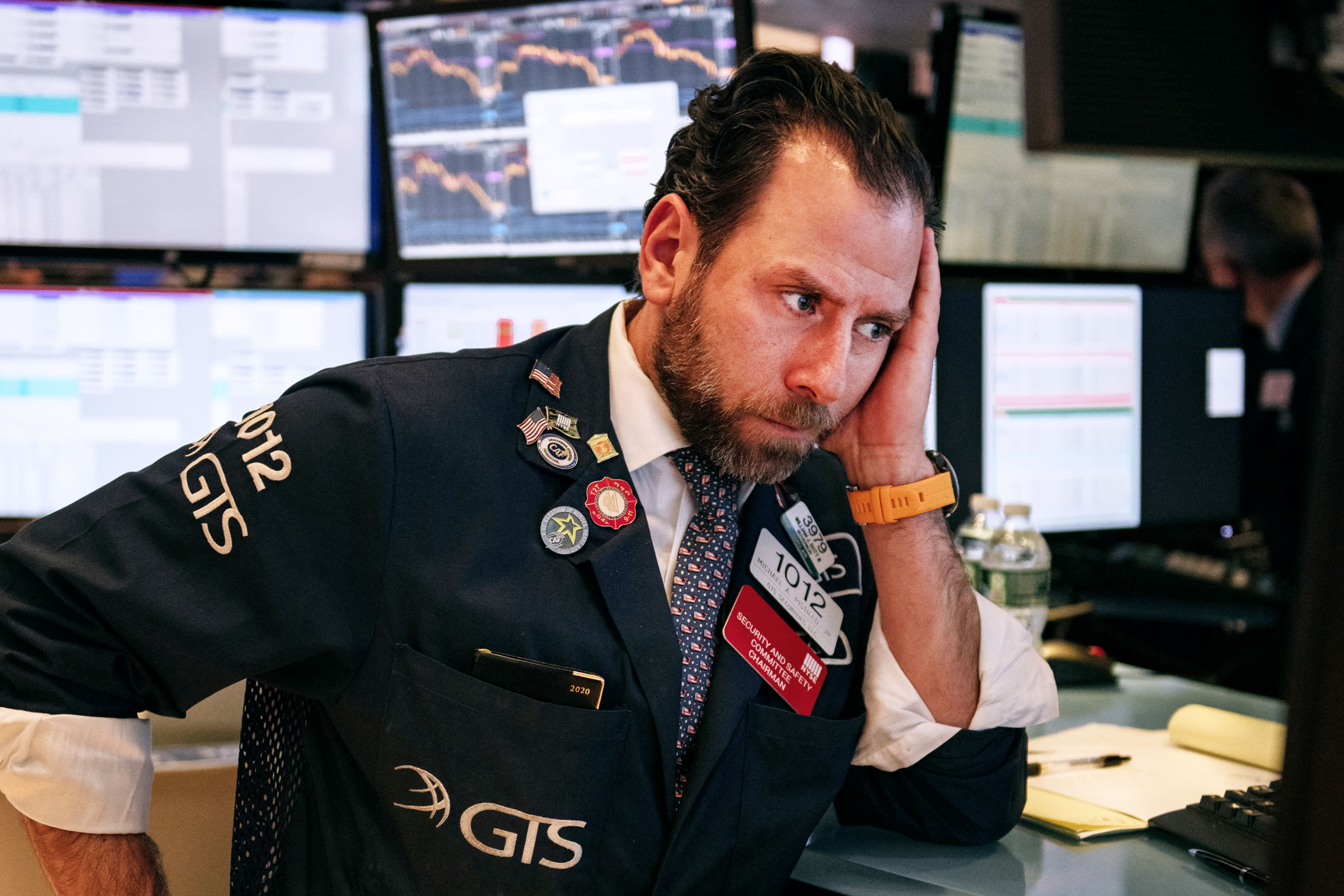Traders work on the floor of the New York Stock Exchange on February 27, 2020.
Scott Heins | Getty Images
Fears that the fast-spreading coronavirus will disrupt global supply chains and tip the economy into a recession are gripping investors on Wall Street.
In a tumultuous week for stocks, the 30-stock Dow swung 1,000 points or more twice within three days. The Dow lost nearly 1,000 points on Thursday, and added sharper declines on Friday, tanking more than 750 points.
While uncertainty reigns, Bank of America created a list of possible recession triggers to monitor the state of the markets and the economy.
Here’s the full list of potential recession triggers to watch, according to Bank of America.
- U.S. consumer strength waning
- Small business confidence collapses below 100
- Jobless claims climb above 250,000
- Lower U.S. mortgage activity
- Likelihood of President Trump being re-elected dipping
Where does the economy stand?
The U.S. consumer is the “key to whether global recession [is] measured in months not weeks,” Bank of America chief investment strategist Michael Hartnett said in a note to clients on Thursday.
The Conference Board’s consumer confidence index showed that confidence rose less than expected in February as people’s assessment of current conditions wavered in the face of the deadly virus. The index came in at 130.7, up from 130.4 in January, but economists polled by Dow Jones were expecting a print of 132.6.
“Despite the decline in the Present Situation Index, consumers continue to view current conditions quite favorably,” said Lynn Franco, senior director of economic indicators at The Conference Board, in a statement.
Overall, the strong U.S. consumer has been a bright spot in an economy troubled by a trade war with China and a new health crisis.
A collapse in small business confidence is another warning sign the economy is slipping. Bank of America said if the NFIB small business optimism index dips below 100, a recession could be coming. Currently, the index sits healthily at 104.3; however, uncertainty surrounding the the coronavirus could cause small businesses to invest less in their futures.
A hit to the labor market could also impact the economy, according to Bank of America. When jobless claims rise over 250,000, this could mean a recession is coming, Hartnett explained.
The number of Americans filing for unemployment benefits fell last week slipped 3,000 to a seasonally adjusted 216,000, the Labor Department said on Thursday. The solid number suggested the labor market was on solid footing despite the coronavirus outbreak, which has stoked financial market fears of a recession and prompted an emergency interest rate cut from the Federal Reserve.
Markets shrugged off a blowout jobs report on Friday. The U.S. economy added 273,000 jobs in February, beating expectations of 175,000 new payrolls last month. The unemployment rate also fell back to 3.5%, matching its lowest level in more than 50 years.
Hartnett also said if fewer people file for mortgage applications it would be negative for the economy. Bank of America uses the the Mortgage Bankers Association Purchase (MBAVPRCH) index, which tracks mortgage purchase applications for single-family homes, to monitor for lower mortgage purchase activity.
Finally, the firm said when the likelihood that President Donald Trump gets re-elected dips, it could cause markets to go down.
According to the metric used by Bank of America, Oddschecker.com, Trump’s likelihood of getting re-elected has fallen to 58% from 62% on Feb. 20. Former Vice President Joe Biden’s chances have risen to 36% from 4% on the same date and Vermont Senator Bernie Sanders has gone down to a 6% chance from a 17% at the end of February.
The Dow posted its second-biggest point gain on Wednesday as major wins from former Vice President Joe Biden during Super Tuesday sparked a relief rally, especially in the health-care sector. However, it is generally believed on Wall Street that Trump is more bullish for equities and the economy, although Biden wouldn’t be detrimental.
— With reporting from CNBC’s Michael Bloom.
Subscribe to CNBC PRO for exclusive insights and analysis, and live business day programming from around the world.
